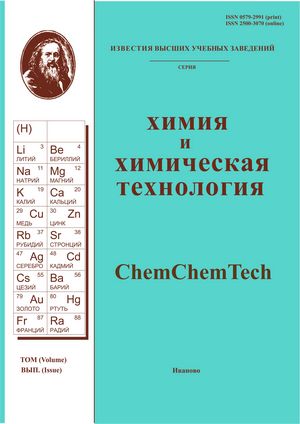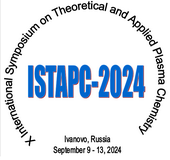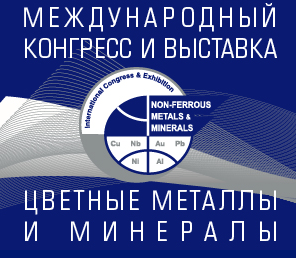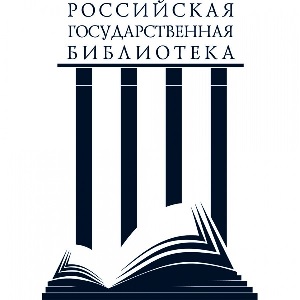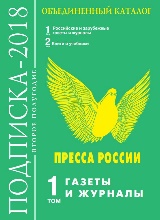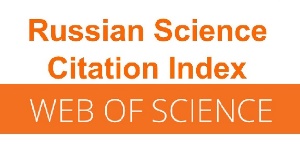ВЛИЯНИЕ УСЛОВИЙ ТЕРМИЧЕСКОГО КРЕКИНГА ПЛАСТИКОВЫХ ОТХОДОВ НА СОСТАВ И ВЫХОД ПРОДУКТОВ
Аннотация
В данном исследовании был изучен состав продуктов, полученных в результате термического крекинга смеси пластиковых отходов. Смесь включала полиэтилен (низкой и высокой плотности), полипропилен, полистирол и полиэтилентерефталат. Экспериментальные исследования проводили при температурах от 450 до 525 °C и продолжительности крекинга от 1 до 60 мин. Установлено, что при крекинге (температура 450 °C и продолжительность 15 мин) исследуемой смеси пластиковых отходов образуется значительное количество фракций, выкипающих выше 360 °C, и твердых н-алканов. Увеличение продолжительности процесса до 60 мин приводит к активной деструкции твердых н-алканов с образованием более 24% мас. газообразных продуктов. Повышение температуры процесса до 475 °C позволяет снизить продолжительность крекинга с 60 до 5 мин для активной деструкции пластиковых отходов с образованием почти 36% бензиновых и 34% мас. дизельных фракций. Крекинг смеси пластиковых отходов при температуре 500 °C в течение 5 мин позволяет получить жидкий продукт со схожим содержанием светлых фракций, как при 475 °C, но с преобладанием дизельных. Показано, что при максимальной температуре процесса (525 °C) реакции крекинга протекают быстро, на что указывает значительное образование продуктов уплотнения. Установлено, что при крекинге пластиковых отходов в интервале температур 450-500 °C наблюдается преобладание деструктивных процессов. При температуре 525 ºС появляются реакции конденсации с образованием фракций 200-360 °C и >360 °C из бензиновых. Показано, что при крекинге данной смеси пластиковых отходов в составе газообразных продуктов в основном образуются: монооксид и диоксид углерода, метан, этан, пропан, н-бутан и н-пентан. Установлено, что для получения большого количества светлых фракций при минимальных выходах побочных продуктов необходимы следующие условия – 475 ºС и 5 мин.
Для цитирования:
Свириденко Н.Н., Фролова У.А., Уразов Х.Х., Сергеев Н.С. Влияние условий термического крекинга пластиковых отходов на состав и выход продуктов. Изв. вузов. Химия и хим. технология. 2025. Т. 68. Вып. 8. С. 112-118. DOI: 10.6060/ivkkt.20256808.13t.
Литература
Pilapitiya P.G.C.N.T, Ratnayake A.S. The world of plastic waste: A review. Clean. Mater. 2024 V. 11. P. 100220. DOI: 10.1016/j.clema.2024.100220.
Geyer R., Jambeck J.R., Law K.L. Production, use, and fate of all plastics ever made. Sci. Adv. 2017. V. 3. P. 1700782. DOI: 10.1126/sciadv.1700782.
Rafey A., Siddiqui F.Z. A review of plastic waste management in India – challenges and opportunities. Int. J. Environ. Analyt. Chem. 2023. V. 103. N 16. P. 3971-3987. DOI: 10.1080/03067319.2021.1917560.
Stubbins A., Law K.L., Muñoz S.E., Bianchi T., Zhu L. Plastics in the Earth system. Science. 2021. V. 373. P. 51-55. DOI: 10.1126/science.abb0354.
Dey S., Veerendra G.T.N., Babu P.S.S.A., Manoj A.V.P., Nagarjuna K. Degradation of Plastics Waste and Its Ef-fects on Biological Ecosystems: A Scientific Analysis and Comprehensive Review. Biomed. Mater. & Devices. 2024. V. 2. P. 70–112. DOI: 10.1007/s44174-023-00085-w.
Korai M.S., Mahar R.B., Uqaili M.A. Optimization of waste to energy routes through biochemical and thermo-chemical treatment options of municipal solid waste in Hyderabad, Pakistan. Energy Convers. Manag. 2016. V. 124. P. 333–343. DOI: 10.1016/j.enconman.2016.07.032.
Shovon S.M., Akash F.A., Rahman W., Rahman M.A., Chakraborty P., Hossain H.M.Z., Monir M.U. Strategies of managing solid waste and energy recovery for a devel-oping country – A review. Heliyon. 2024. V. 10. N 2. P. 24736. DOI: 10.1016/j.heliyon.2024.e24736.
Shah J., Jan M.R., Adnan. Metal decorated montmorillo-nite as a catalyst for the degradation of polystyrene. J. oTaiwan Inst. Chem. Eng. 2017. V. 80. P. 391–398. DOI: 10.1016/j.jtice.2017.07.026.
Sviridenko N.N., Urazov K.K., Sergeyev N.S. The effect of asphaltenes quantity on thermal and catalytic cracking product yield of heavy oil from Karmalskoye field. ChemChemTech [Izv. Vyssh. Uchebn. Zaved. Khim. Khim. Tekhnol.]. 2024. V. 67. N 8. P. 76-84. DOI: 10.6060/ivkkt.20246708.6t.
Krivtsov E.B., Goncharov A.V., Sviridenko Y.A., Merzhigot M.I. Kinetic patterns of formation and destruction of thiophene derivatives during heat treatment of oxidation products of high-sulfur vacuum gas oil. ChemChemTech [Izv. Vyssh. Uchebn. Zaved. Khim. Khim. Tekhnol.]. 2023. V. 66. N 11. P. 32–41. DOI: 10.6060/ivkkt.20236611.15t.
Sergeev N.S., Sviridenko N.N., Urazov Kh.Kh. Cocracking of atmospheric residue and plastic waste. J. Ana-lyt. Appl. Pyrol. 2024. V. 179. P. 106422. DOI: 10.1016/j.jaap.2024.106422.
Akin O., Varghese R.J., Eschenbacher A., Oenema J., Abbas-Abadi M.S., Stefanidis G.D., Geem K.M.V. Chemical recycling of plastic waste to monomers: Effect of catalyst contact time, acidity and pore size on olefin re-covery in ex-situ catalytic pyrolysis of polyolefin waste. J. Analyt. Appl. Pyrol. 2023. V. 172. P. 106036. DOI: 10.1016/j.jaap.2023.106036.
Choi I.-H., Lee H.-J., Rhim G.-B., Chun D.-H., Lee K.-H., Hwang K.-R. Catalytic hydrocracking of heavy wax from pyrolysis of plastic wastes using Pd/Hβ for naphtha-ranged hydrocarbon production. J. Analyt. Appl. Pyrol. 2022. V. 161. P. 105424. DOI: 10.1016/j.jaap.2021.105424.
Chen Z., Erwin B.J., Che L. Recycling waste polyethylene into fuels over Fe/USY catalyst: Evaluation on the catalytic activities of varied iron states. Fuel. 2024. V. 363. P. 131007. DOI: 10.1016/j.fuel.2024.131007.
Palos R., Gutiérrez A., Vela F.Jю, Olazar M., Arandes M J., Bilbao J. Waste Refinery: The Valorization of Waste Plastics and End-of-Life Tires in Refinery Units. A Review. Energy Fuels. 2021. V. 35. N 5. P. 3529-3557. DOI: 10.1021/acs.energyfuels.0c03918.
Kots P.A., Doika P.A., Vance B.C., Najmi S., Vlachos D.G. Tuning High-Density Polyethylene Hydrocracking through Mordenite Zeolite Crystal Engineering. ACS Sus-tain. Chem. Eng. 2023. V. 11. N 24. P. 9000-9009. DOI: 10.1021/acssuschemeng.3c01515.
Palos R., Rodríguez E., Gutiérrez A., Bilbao J., Arandes J.M. Cracking of plastic pyrolysis oil over FCC equilibri-um catalysts to produce fuels: Kinetic modeling. Fuel. 2022. V. 316. P. 123341. DOI: 10.1016/j.fuel.2022.123341.
Klimov O.V., Nadeina K.A., Potapenko O.V., Vatutina Yu.V., Saiko A.V., Koveza V.A., Mukhacheva P.P., Krestyaninova V.S., Yurtaeva A.S., Bogomolova T.S., Salomatina A.A., Gerasimov E.Yu., Prosvirin I.P., Noskov A.S. Refining of chlorine-containing plastic wastes by traditional hydrotreating and catalytic cracking processes. Fuel. 2023. V. 349. P. 128651. DOI: 10.1016/j.fuel.2023.128651.
Al-Fatesh A.S., AL-Garadi N.Y.A., Osman A.I., Al-Mubaddel F.S., Ibrahim A.A., Khan W.U., Alanazi Y.M., Alrashed M.M., Alothman O.Y. From plastic waste pyrolysis to Fuel: Impact of process parameters and material selection on hydrogen production. Fuel. 2023. V. 344. P. 128107. DOI: 10.1016/j.fuel.2023.128107.
Kasar P., Ahmaruzzaman M. Characterization of liquid products obtained from catalytic binary cocracking of residual fuel oil with various waste plastics. Sci. Rep. 2022. V. 12. P. 10987. DOI: 10.1038/s41598-022-15371-8.
Cai W., Wang X., Zhu Z., Kumar R., Amaniampong P.N., Zhao J., Hu Z.-T. Synergetic effects in the copyrolysis of lignocellulosic biomass and plastic waste for renewable fuels and chemicals. Fuel. 2023. V. 353. P. 129210. DOI: 10.1016/j.fuel.2023.129210.
Chen G., Cao X., Che Y., Zeng D., Li J., Li S., Zhao J., Yan B. Synergistic effect on low-pressure pyrolysis of bi-omass-plastic mixture as representative of Tibetan tourism solid waste. J. Analyt. Appl. Pyrol. 2023. V. 175. P. 106181. DOI: 10.1016/j.jaap.2023.106181.
Tejaswini M.S.S.R., Pathak P. Co-combustion of multi-layered plastic waste blend with biomass: Thermokinetics and synergistic effect. Fuel. 2023. V. 337. P. 127168. DOI: 10.1016/j.fuel.2022.127168.
Khan M.Z.H., Sultana M., Al-Mamun M.R., Hasan M.R. Pyrolytic waste plastic oil and its diesel blend: fuel charac-terization. J. Environ. Public Health. 2016. V. 8. P. 1-6. DOI: 10.1155/2016/7869080.
Hussein Z.A., Shakor Z.M., Alzuhairi M., Al-Sheikh F. Thermal and catalytic cracking of plastic waste: a review. Internat. J. Environ. Analyt. Chem. 2023. V. 103. N 17. P. 5920-5937. DOI: 10.1080/03067319.2021.1946527.
Sahu R., Song B. J., Im J. S., Jeon Y., Lee C.W. A review of recent advances in catalytic hydrocracking of heavy residues. J. Ind. Eng. Chem. 2015. V. 27. P. 12−24. DOI: 10.1016/j.jiec.2015.01.011.
Munir D., Irfan M.F., Usman M.R. Hydrocracking of Virgin and Waste Plastics: A Detailed Review. Renew. Sus-tain. Energy Rev. 2018. V. 90. P. 490−515. DOI: 10.1016/j.jiec.2015.01.011.
Vela F.J., Palos R., Bilbao J., Arandes J.M., Gutiérrez A. Effect of Co-Feeding HDPE on the Product Distribution in the Hydrocracking of VGO. Catal. Today. 2020. V. 353. P. 197−203. DOI: 10.1016/j.cattod.2019.07.010.
Lingaiah N., Uddin M.A, Muto A., Imai T., Sakata Y. Removal of organic chlorine compounds by catalytic de-hydrochlorination for the refinement of municipal waste plastic derived oil. Fuel. 2001. V. 80. P. 1901-1905. DOI: 10.1016/S0016-2361(01)00046-1.
Pan J., Jiang H., Qing T., Zhang J., Tian K. Transfor-mation and kinetics of chlorine-containing products during pyrolysis of plastic wastes. Chemosphere. 2021. V. 284. P. 131348. DOI: 10.1016/j.chemosphere.2021.131348.
Lopez-Urionabarrenechea A., de Marco I., Caballero B.M., Laresgoiti M.F., Adrados A. Upgrading of chlorin-ated oils coming from pyrolysis of plastic waste. Fuel Proc. Technol. 2015. V. 137. P. 229-239. DOI: 10.1016/j.fuproc.2015.04.015.
He W., Sun Y., Shan X. Organic matter evolution in pyrolysis experiments of oil shale under high pressure: Guidance for in situ conversion of oil shale in the Songliao Basin. J. Analyt. Appl. Pyrol. 2021. V. 155. P. 105091. DOI: 10.1016/j.jaap.2021.105091.

